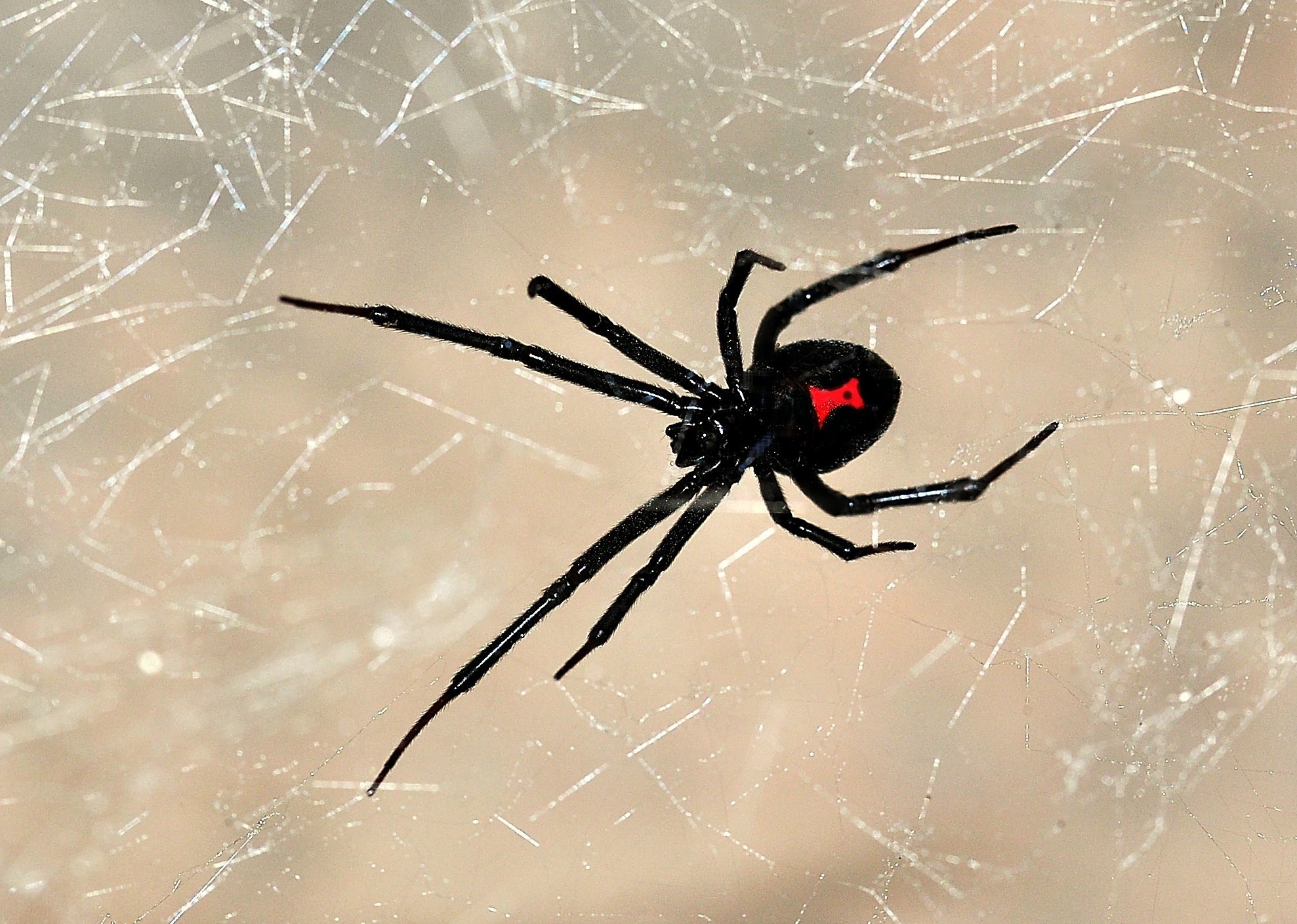The ethical conundrum created by human interactions with poisonous species is one that tests the limits of vegan ethics. What is the correct path of action if one should come across a potentially deadly black widow spider, for instance? Can veganism’s commitment to nonviolence resist the intense social pressure to kill these beings on sight?
As with many questions about the practicality of veganism, speciesism interferes with clear decision-making. Humans harbor implicit biases about other animals which puts them at a disadvantage in perceived conflicts of interest. The stigma surrounding black widow spiders, for instance, is built on a certain amount of ignorance (unfamiliarity with the species) and stereotyping (loosely-fitting generalizations). Mass media, which frequently portrays spiders as villainous, lurking, and evil, also inhibits rational consideration.
The true nature of black widows contradicts common conceptions. First, they are quite clumsy outside of their web. This means that they are homebodies, rarely out on the prowl and not likely to give chase. Neither are they very brave. If their foe is formidable (as would be a large human), they prefer escape over attack. Most importantly, statistically few humans are bitten, and very few of these will actually die.
Of course, these facts do little to mitigate the fear of pain and death that black widows exact. It is hard to remain rational when suddenly encountering them. I have personally seen a few black widows over the years, but only one of these instances I could consider a close call. I was home alone preparing for a tubing trip on the river. I dragged out a bunch of old inner tubes that had been stacked in the backyard, attempted to hose some of the mud off, then started cramming them into the trunk of my car. I probably spent a good five minutes jamming them in, repositioning them, and smashing them with my bare hands.
My friend met me at the gas station a few minutes later to fill the tubes up with air. As I handed him the second tube, he recoiled and let out a yell: there was a black widow amidst the rubber. He was shaken; he could have been bitten. Acutely remembering my sloppy packing job, I realized that I could have been bitten as well.
My friend, who knew me to be a vegan, said to me: “You know we can’t let that spider live.” I considered the fact that he may be right as we were in a busy public space. But he didn’t kill her, and neither did I. She clung to the air pumping station while we worked, and when we were done, we loaded up and left. I didn’t see her anymore, and presumed she had scuttled away.
Of course, not everyone’s choices are so simple. Sometimes deadly spiders take up residence with families that have children or elderly persons. Some people live in geographic hot spots that attract far too many black widows to safely live side by side with. Complicating this is that medical treatment for bites are not vegan. The antivenin (for those lucky enough to receive it) is produced by hurting other spiders. Horses and other animals are also used in testing the product.
The case for black widow spiders challenges the core of the vegan ethic: is it ever acceptable to kill another in a situation of potential danger? Unfortunately, these ethical catch-22s are too frequently used to dismiss veganism altogether under the faulty deductive logic that, because moral purity is impossible, veganism is also impossible. While black widows do present a murky ethical situation, most of our relationships and encounters with Nonhuman Animals are not life or death situations and do not require killings of necessity. The uncertainty of how to handle the chance encounter with a black widow holds little relevance to the certainty of systematic exploitation of Nonhuman Animals killed for food, clothing, and entertainment. Unlike black widows, these species do not pose any threat to humans; indeed, they suffer and die only to meet production quotas and consumer demands.
Being vegan is a guiding practice, not a dogma. It encourages striving for perfection only as far as is reasonable. Just because some vegans may resort to killing insects in rare and regrettable situations (and it is not something that vegans take likely or enjoy doing), this is not cause to toss veganism out the window as useless or unrealistic. Vegan ethics advise compromise and life-affirming, creative solutions. In many instances, the best solution to problems is to avoid them in the first place and take preventative measures. Keeping a tidy, clean home, applying insect repellent, and checking your shoes before putting them on are some easy ways to nurture coexistence with insects, be they biting, stinging, or deadly.
An earlier version of this essay first appeared on the Academic Activist Vegan on September 17, 2013.

Readers can learn more about the politics of veganism in my 2016 publication, A Rational Approach to Animal Rights. Receive research updates straight to your inbox by subscribing to my newsletter.
